IT TAKES A
VILLAGE

THE NEW LEGION VETERANS VILLAGE
IN SURREY, B.C., IS OFFERING
UNHERALDED OPPORTUNITIES
FOR MILITARY HEALTH CARE
By Paige Jasmine Gilmar
March 2024
Retired captain stage-left, a laser-like focus on the opposite side of the platform. Fitted with a backpack and waist-down exoskeleton, he cut a formidable figure, an iron soldier, if you will, set against the harsh hues of LED lighting and a white curtain backdrop. It was Sept. 17, 2015, at Simon Fraser University’s Surrey, B.C., campus and Greene was going to walk in public for the first time in nearly a decade.
Deployed to Afghanistan with the Seaforth Highlanders of Canada in 2006, Greene’s journalism experience made him a suitable choice for a civil-military cooperation officer. Tasked with securing and expanding infrastructure assistance to villages throughout the war-ravaged Kandahar province, Greene was having tea with the elders of Shinkay on March 4, 2006. He had removed his helmet in respect.
But a 16-year old member of the Taliban interrupted the meeting, thrusting a homemade axe into Greene’s head. The ambush and ensuing chaos consumed the village. The assailant was quickly dispatched by the Canadian Armed Forces. With Greene's skull exposed, a medic frantically tried to stabilize him.
Greene was eventually flown to Germany for treatment and his wife Debbie was inundated with medical guesstimates of her husband’s prognosis. Initially, Greene wasn’t expected to survive his spinal-cord injuries; then he was going to be in a coma forever; finally, he was to be permanently handicapped.
Coupled with post-traumatic stress disorder, Greene was left riddled with health challenges that made day-to-day life incredibly difficult. But, Greene defied all odds, thanks to months of surgeries, therapies and alternative treatments.
“It was wonderful working with Trevor. He was such a hard worker,” said Pauline Martin, one of Greene’s physiotherapists and the CEO of Neuromotion, a B.C.- based chain of rehabilitation clinics that offer the latest technologies for those with severe neurological conditions. “He wanted answers to questions about what he could do to get better at home, what he could do to fix things.”
Greene’s robotic exoskeleton—built by Israeli-based ReWalk Robotics and funded initially through Project Iron Soldier, a campaign first spearheaded by Grade 12 student Rebecca Lumley and The Royal Canadian Legion’s
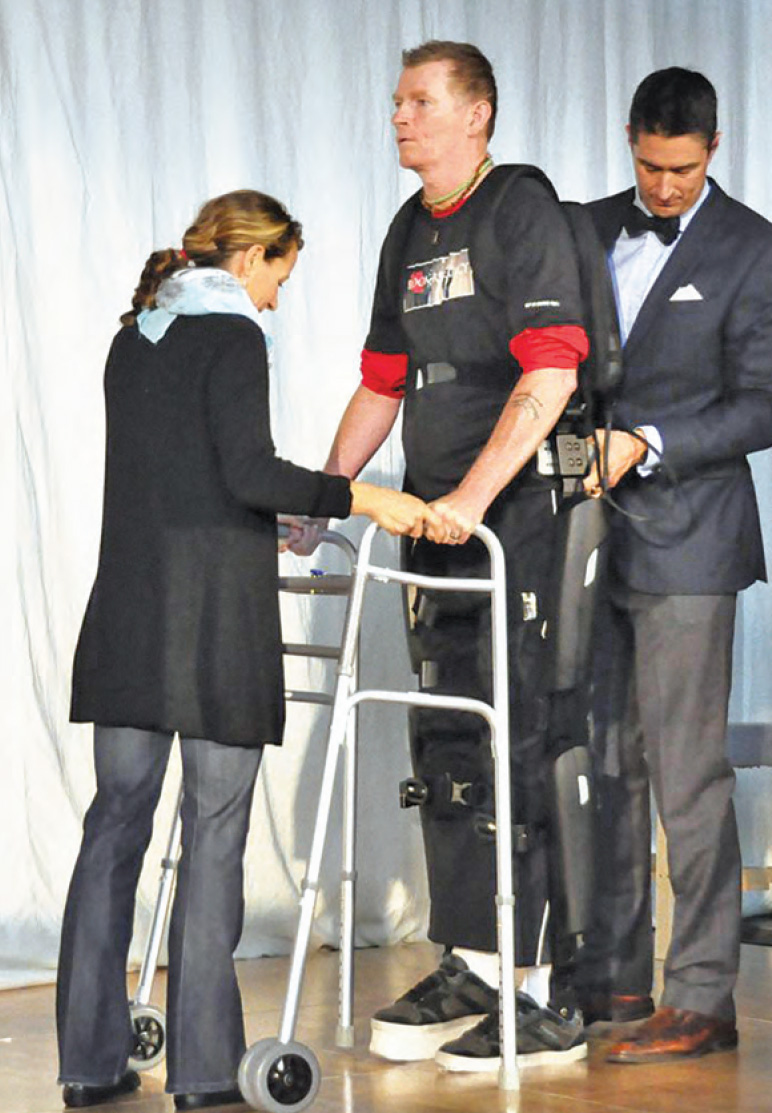
“THE REGULAR HEALTH-CARE SYSTEM IS NOT EQUIPPED TO ADEQUATELY SUPPORT A VETERAN ."
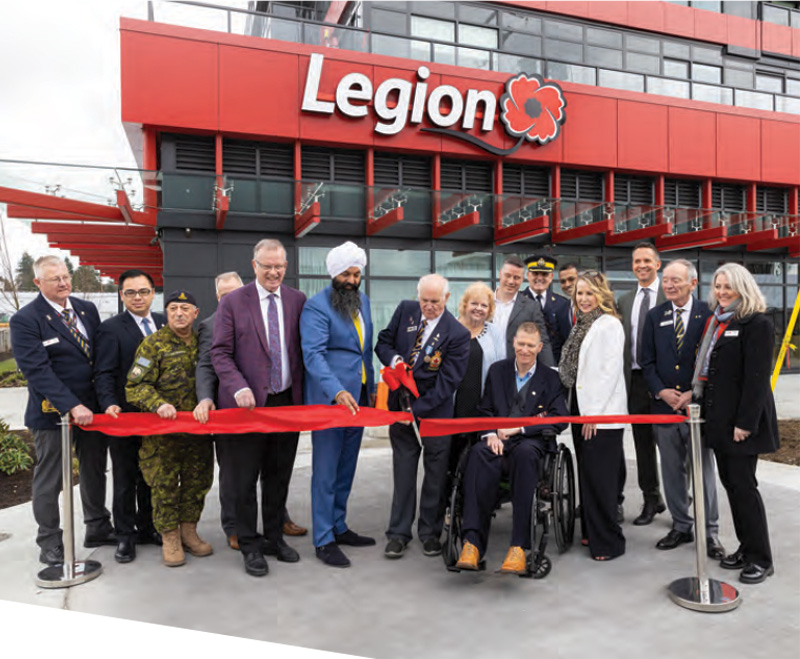
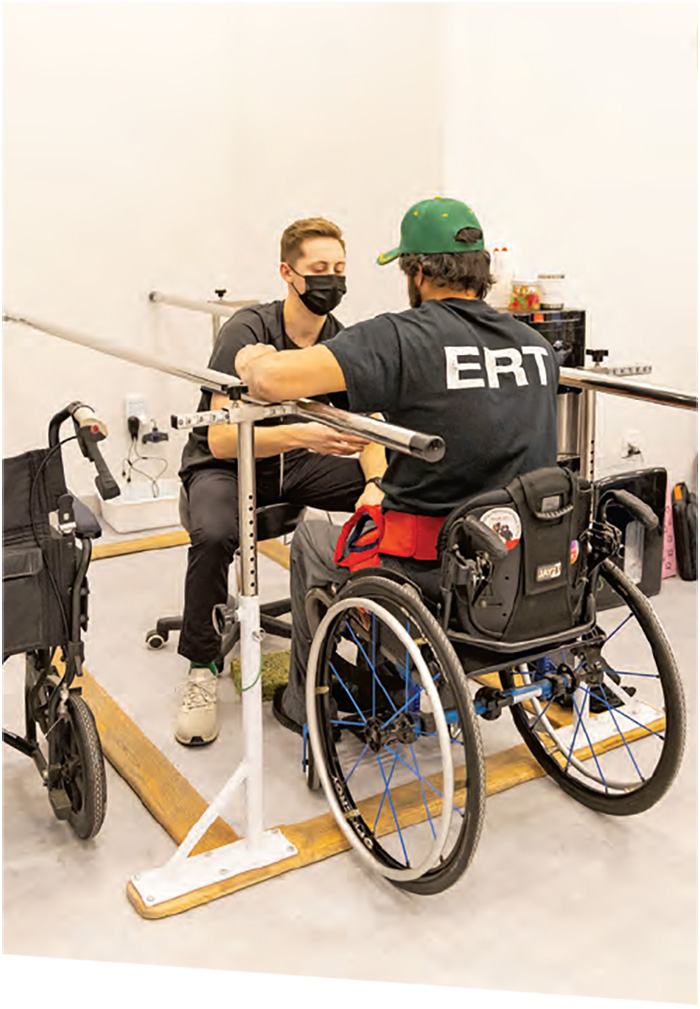
B.C./Yukon Command—stimulated and exercised his lower body while building new neural pathways for physiological and psychological recovery.
Greene decided to put his healing to the test that day on stage in 2015. With Debbie guiding his walker and ReWalk training director Jay Courant stabilizing his exoskeleton’s movements, Greene took about 14 paces to the podium.
“His inspiration is his purpose right now,” said Martin. “It’s really valuable. Seeing other people working so hard is motivating.”
While his first steps were understandably a little uneven, Greene found his stride and moved confidently toward centre stage. After completing the milestone feat, Debbie slowly helped turn Greene to face the audience to reveal a smile—a grin born from pride and happiness of achieving what once seemed improbable. The local Legion then announced that Greene soon wouldn’t be the only veteran capable of similar such advances; others could receive the same state-of-the-art health care through a new, revolutionary project: the Legion Veterans Village.
Legion Veterans Village is a $312-million project that provides integrated health care and housing for veterans and first responders. Located in the heart of downtown Surrey, the building celebrated its grand opening in February 2023 after years of planning, design and construction.
“We’ve been unwavering,” said Rowena Rizzotti, a founder and current leader of the facility. “We’ve met every single Monday morning for eight years.”
Funded by the RCL’s local Whalley Branch, the provincial government and Lark Group of Companies, a locally based development and construction firm, the village boasts a multi-faceted staff, many of whom were impressed after witnessing the community’s ability to fundraise to address gaps in veteran health care.
“The regular health-care system is not equipped or prepared to adequately support a veteran,” noted Rizzotti, who trained as both a nurse and a paramedic and has more than 35 years of experience in executive leadership in the industry.
Unlike the U.S. Veterans Health Administration, which provides integrated, veteran-specific health care, former CAF members are funneled into a system with long waiting times, confusing paperwork and red tape that often leaves them frustrated.
“When you leave the service and become a civilian, you essentially are just like any other Canadian,” said Rizzotti. “And so, a primary care physician, a rehabilitation provider, a mental health practitioner and other agencies don’t talk to each other.
“For a veteran who has suffered as a result of their service, it’s very difficult for them to navigate that system, and there’s no support and assistance really.”
Plus, because some general practitioners who veterans are matched with have little exposure to military-specific health concerns, they can deliver inferior treatment. And that can lead some veterans to develop a mistrust for health-care providers.
“Veterans fall between the gaps, and some of that is what results in tragic outcomes,” said Rizzotti.
Before Greene got involved with Project Iron Soldier, for example, he was part of this unfortunate narrative—his initial doctor dismissed his prospects for recovery. But Greene’s walk across the stage, and the village’s initiative at large, prove that anything is possible.
Wanting to help inspire other veteran success stories like Greene’s into existence, Rizzotti’s team met with close to 100 clinicians, veterans and veteran families when the project first launched to learn about the most critical challenges in veteran health care and housing. Rizzotti was determined to understand every issue and pitfall.
“It was very raw. It was very honest,” said Rizzotti of the feedback they received. “Leaving the service, they felt quite abandoned.
“We’re really not supporting them the way they need to be supported, yet we still have expectations that they’re going to show up and support us.”
Rizzotti’s team then defined generalizable trends from the responses that it hoped to remedy and spent the next four years building a consortium of stakeholders.
“It needed every single type of partner because of the project’s complexity,” noted Rizzotti.
After approving Michael Green Architecture’s building design in September 2019, a two-phase construction plan was initiated. Its design inspired by the Canadian National Vimy Memorial, the first stage was completed in four years. The 20-storey building, boasting red-and-black design accents, includes 91 affordable units, 171 regular apartments, the new Whalley Legion Branch and a Centre of Clinical Excellence, a cutting-edge health facility for veterans and first responders.
The affordable units are owned and operated by VRS Communities, a nonprofit housing service. There are studio and one- and two-bedroom suites, 10 of which have features to aid mobility, such as wheelchair accessible kitchens and bathrooms. The apartments, all with modernist design, are available to anyone, but preference is given to veterans, first responders and Legion members.
In part an attempt to help address veteran homelessness, Rizzotti recognizes that just because the units are lower than market price, doesn’t mean veterans can afford them.
“The market is so high right now that even the affordable housing is still too costly,” said Rizzotti.
While many of the affordable apartments are currently vacant, VRS is working with Veterans Affairs Canada and other agencies on further subsidies for the many veterans interested in the housing and health care.
“We’ve been working on a number of applications to generate more support for veterans having financial hardships,” said Rizzotti.
On the other hand, the building’s regular units have proved popular. Both the affordable and regular apartments have a symbiotic relationship, with the hundreds of thousands of dollars generated from the latter going into veteran housing and health care.
The Whalley Legion hall that opened in 1960 to much fanfare was, 60 years later, in need of a facelift. The new open-concept, 975-square-metre facility at Legion Veterans Village boasts an upscale casual dining restaurant and bar, full-service kitchen, cadet assembly hall, banquet room, lounge and billiards area, and a military library. And with its streamlined architectural designs, it’s a community centre for the modern age.
“Legions are always likened to old men in dark and dingy places drinking beer,” said branch President Tony Moore. “Now, we still drink beer, but it’s not dark and dingy. It’s beautiful.”
Careful consideration and craftsmanship can be found throughout the facility, most notably from the illuminated, handcarved glass of the Vimy Memorial that leaves a sparkle and glow in visitors’ eyes when they first walk into the branch.
But perhaps what makes the new facility so special is its associated Centre of Clinical Excellence, which hosts arguably one of the most integrated continuums of veteran health care programs in Canada.
“We’re seeing people being taken out of wheelchairs and getting to walk for the first time,” said Moore. “That is really fantastic.”
Operated by an interdisciplinary health-care group that uses state-ofthe- art digital technology to personalize its patient services, the centre focuses on advancing evidence-based care.
Lorne Friesen, the centre’s chief executive officer, noted that the team is developing services that will offer patients virtually continuous connection to their health-care providers. For instance, clients may wear heart-rate monitors that will provide data simultaneously to the centre. Other devices could allow the centre’s practitioners similar real-time contact with their patients on a range of other medical issues, too.
“We will be rendered one of the first organizations in Canada to be able to offer this full suite of services,” said Friesen.
No bureaucratic bilge in sight, veterans and first responders can be easily matched with a range of medical professionals that specialize in their treatment. The centre offers primary care, lifestyle medicine, mental health, addiction and chronic pain services, a dental practice and the aforementioned Neuromotion clinic that worked with Trevor Greene.
Neuromotion is best known for its robotassisted gait rehabilitation and robotic legs. The company also has other innovative technologies to help get former military personnel moving again, all of which co-ordinate and refine motor skills and movements.
According to Friesen, the centre’s revolutionary medical care will also include pioneering procedures for psychological conditions, such as sensory reality pods for ultra-realistic exposure therapy and ketamine therapy, which uses a psychedelic drug known to help with treatment-resistant depression.
“We’ve made a very large investment in technology to support the centre,” said Friesen. “We want to make sure that veterans and first responders have the best of the best accessible to them.”
The centre is also a hub for academic institutions, offering internships and training for those studying engineering, neuroscience or social sciences. Under the guidance of top leaders from the University of British Columbia, Simon Fraser University, Vancouver Coastal Health and the CAF, the facility aims to become a hotbed of research.
“We want to research and publish all of our findings because we want to be able to shift current practices,” said Rizzotti. “We want to demonstrate that these improvements can happen.”
Only a few months after the facility’s grand opening, the research program received a big boost with $500,000 in funding from VAC for a personalized therapeutics program focused on treating long-COVID symptoms in veterans.
With the first phase of Legion Veterans Village complete, its second is now underway: an additional 26-storey tower that will include 400 more condominium apartments, the sale of which should generate even more funding for the village’s veteran facilities.
“It’s already doing amazing things,” said Rizzotti, “and it’s going to do extraordinary things.”
“WE WANT TO MAKE SURE THAT VETERAN AND FIRST RESPONDERS HAVE THE BEST OF THE BEST ACCESSIBLE TO THEM."
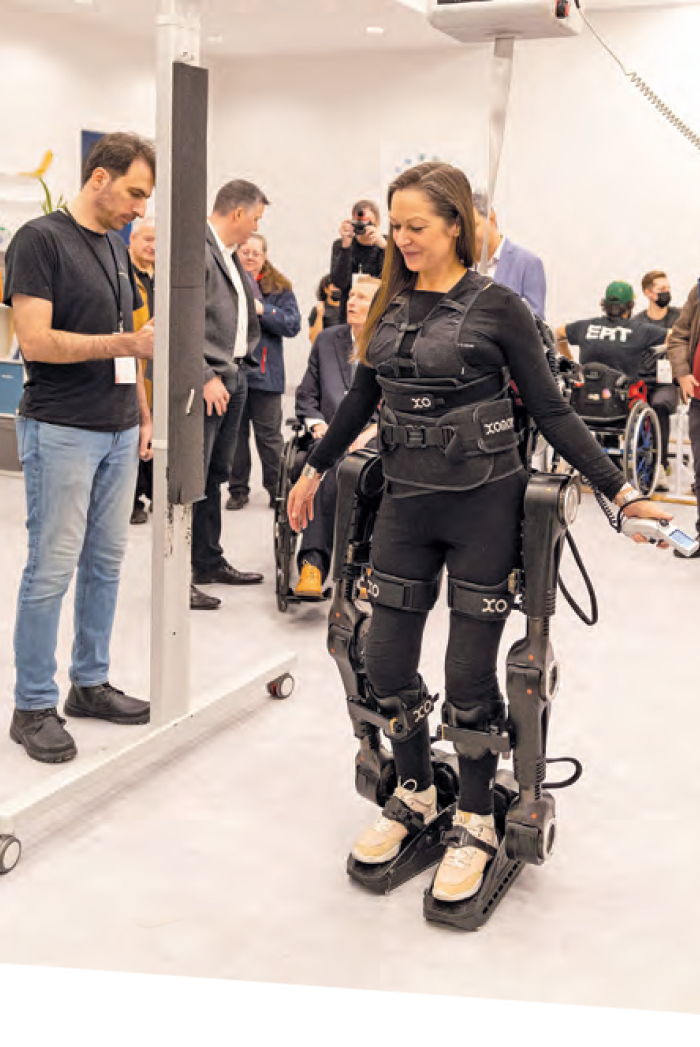
BRANCHING OUT
Legion Veterans Village may serve as a model for the next evolution of Royal Canadian Legion branches. So says one of the facility’s founders, Rowena Rizzotti, and Whalley Legion branch President Tony Moore, whose group was one of the key funders of the project.
While Legion halls have survived for nearly 100 years as key local community centres, the existing business equation in many places of bars and meat draws is showing its age. Replicating the Veterans Village concept elsewhere could help modernize local branches, grow membership and prevent branch closures.
It might also attract younger veterans by providing a one-stop shop for health care, housing and a sense of community. Local branches, meanwhile, would get consistent funding from members, governments and developers.
“There’s a new generation of veterans, and the old Legion model isn’t necessarily conducive to the younger population,” said Rizzotti.
Legion membership rates could also get a boost from associated health-care programs, particularly given that those offering such services are eager to share them with military families as well as nonmilitary Legion members.
Indeed, the concept has also caught the interest of some existing Legion members in other parts of the country.
“We received hundreds of inquiries from veterans across the country,” said Rizzotti. “Our hope and our dream is to share our model as a template in hopes of replicating it. We want to create a movement where we are impacting veterans’ lives across Canada.”
Legion Veterans Village to Receive $500,000 from Veterans Affairs Canada for Long COVID and Brain Fog Therapeutic Programs
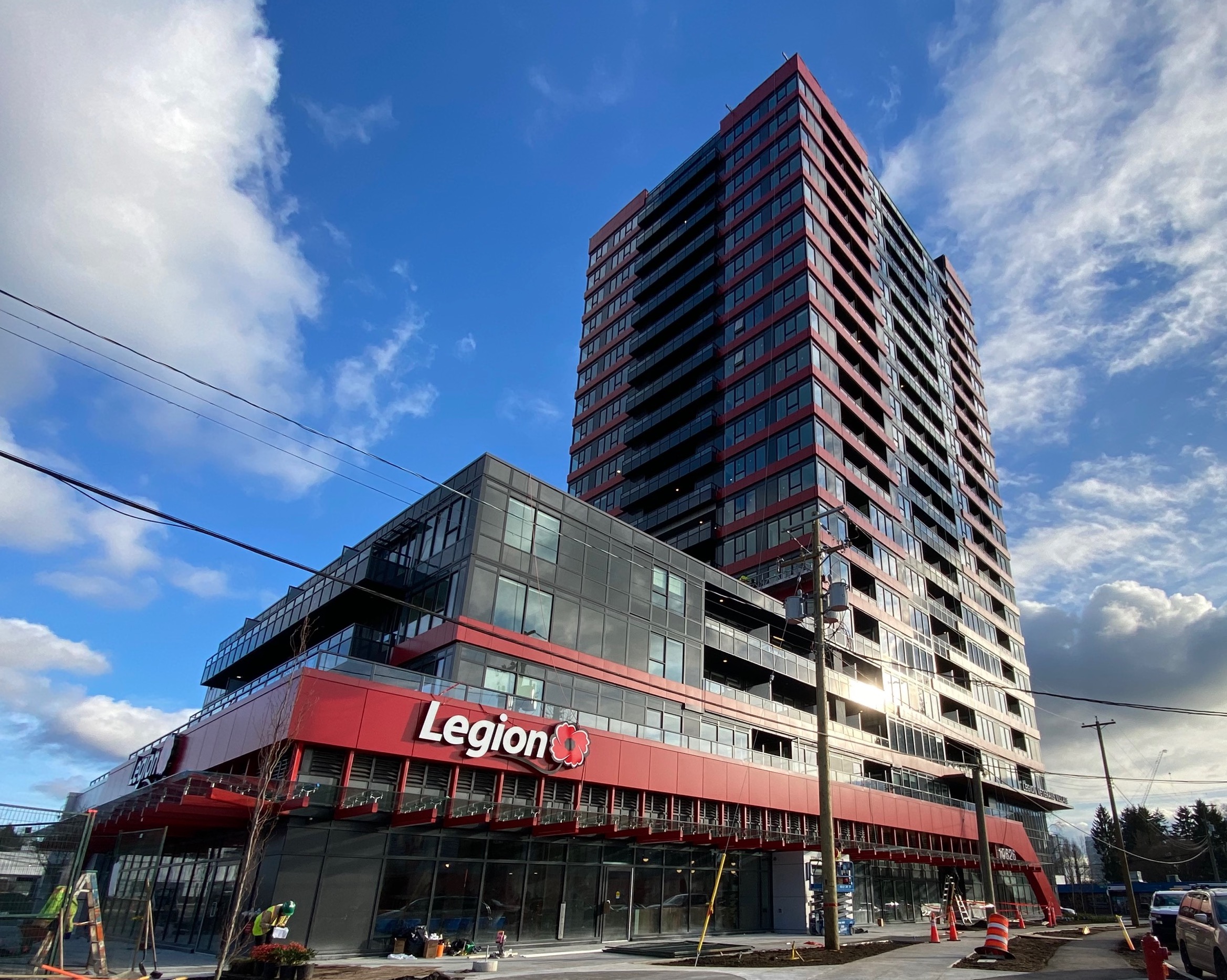
Legion Veterans Village Celebrates Grand Opening Legion BC/Yukon Command Donates $1-Million to Legion Veterans Village Research Foundation

Legion Veterans Village Celebrates Grand Opening

The Veterans and First Responders Who Serve Us*
suffer from trauma, PTSD and
other mental health challenges.
suffer from trauma, PTSD and other
mental health challenges.
What We Do
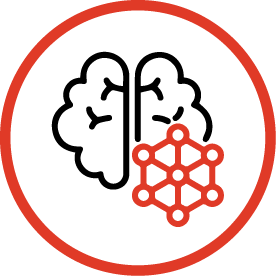
ACCESS TO INTEGRATED CARE
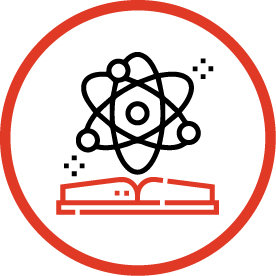
TRANSLATIONAL RESEARCH

TECHNOLOGIES
Our
Mission
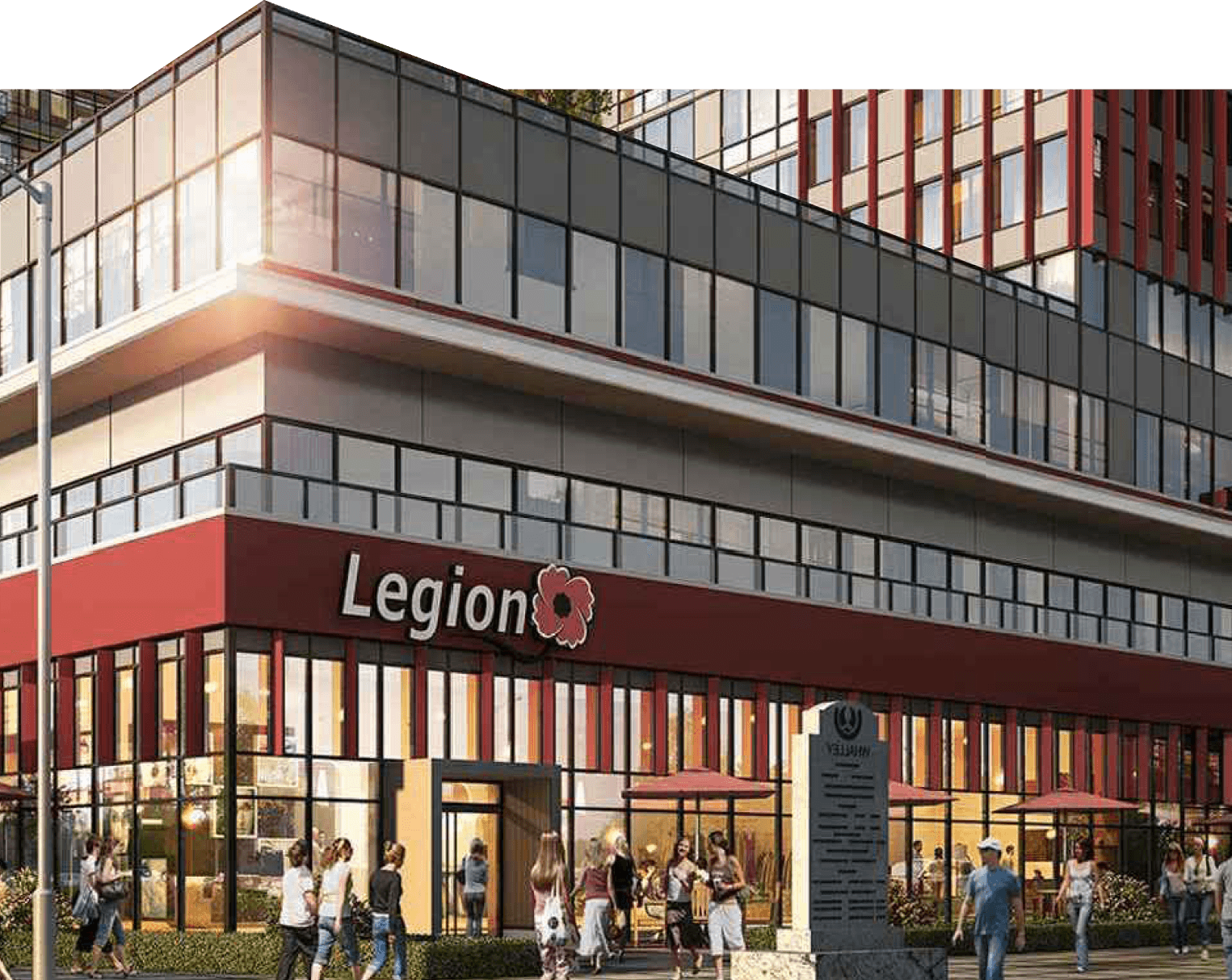
Our
Vision
DONATE BY MAIL
Please address cheques to Legion Veterans Village Research Foundation, and mail it to:
101-10626 City Parkway
Surrey, BC, V3T 4C7
